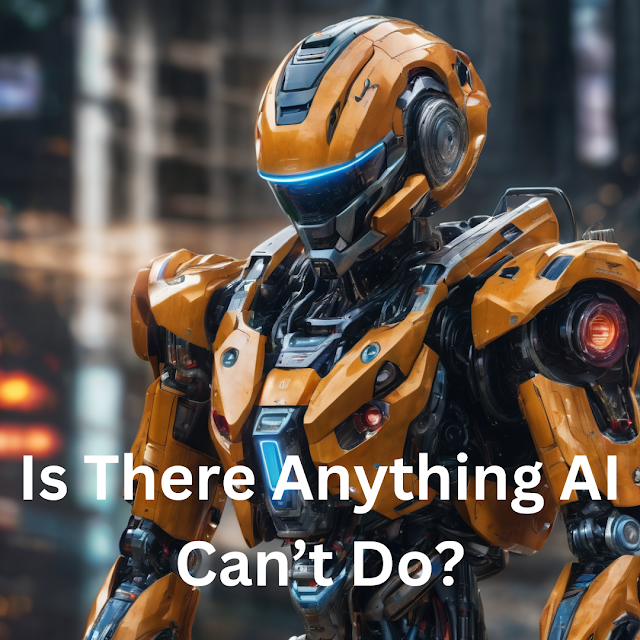Artificial Intelligence (AI) is a rapidly growing field that has shown tremendous potential in automating tasks and solving complex problems. However, despite its impressive advancements, there are still certain limitations to what AI can do. In this article, we will explore some of the key limitations of AI and discuss why these limitations exist.
What can AI not do? | Is There Anything AI Can’t Do?
Lack of creativity:
AI algorithms are designed to perform specific tasks and are not capable of generating new ideas or coming up with creative solutions to problems. They rely on the data they are trained on to make decisions and lack the ability to think outside the box.
Limited understanding of context:
AI systems are often designed to perform specific tasks, such as recognizing faces in images or translating text from one language to another. They may struggle to understand the context in which these tasks are being performed, making it difficult for them to make accurate decisions.
Inability to understand emotions:
AI systems lack the ability to understand emotions and the social cues that accompany them. This can lead to awkward or even harmful interactions between humans and AI systems.
Poor decision-making ability:
AI algorithms are only as good as the data they are trained on. If the data they are trained on is biased or incomplete, the decisions they make will be flawed as well.
Lack of common sense:
AI systems lack the common sense and intuition that humans possess. This makes it difficult for them to handle real-world situations that are not explicitly covered by the data they were trained on.
Difficulty with abstract reasoning:
AI algorithms struggle with abstract reasoning tasks, such as solving problems in creative ways or understanding complex concepts. They are designed to perform specific tasks, such as recognizing patterns in data, and are not equipped to handle more complex problem-solving tasks.
Dependence on large amounts of data:
AI algorithms require large amounts of data to train on in order to make accurate decisions. This can be a significant barrier for organizations that do not have access to large amounts of data or the resources to collect it.
Vulnerability to hacking and malicious use:
AI systems can be vulnerable to hacking and malicious use, as they often rely on large amounts of sensitive data. If the security of this data is compromised, it can result in serious consequences for individuals and organizations.
Ethical concerns:
The rapid development of AI has raised ethical concerns about its impact on society and the economy. For example, the automation of jobs may lead to unemployment, and the use of AI in decision-making processes may perpetuate biases and discrimination.
Lack of transparency:
The decision-making processes of AI algorithms can be difficult to understand and interpret. This lack of transparency makes it difficult for individuals and organizations to trust the decisions being made by AI systems.
Conclusion
In conclusion, while AI has made great strides in automating tasks and solving complex problems, it still has a number of limitations that must be addressed in order for it to reach its full potential. From a lack of creativity and emotional understanding, to the dependence on large amounts of data and ethical concerns, there are still many challenges that need to be overcome in order for AI to truly change the world.
It is important to remember that AI is a tool, and like any tool, it has its limitations. By understanding these limitations and working to overcome them, we can ensure that AI is used in ethical and responsible ways to improve our lives and make the world a better place.



.png)
.jpg)
.jpg)








